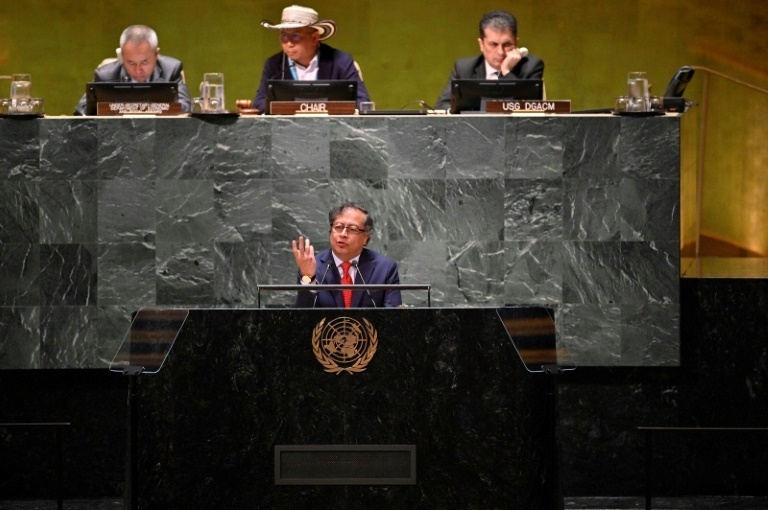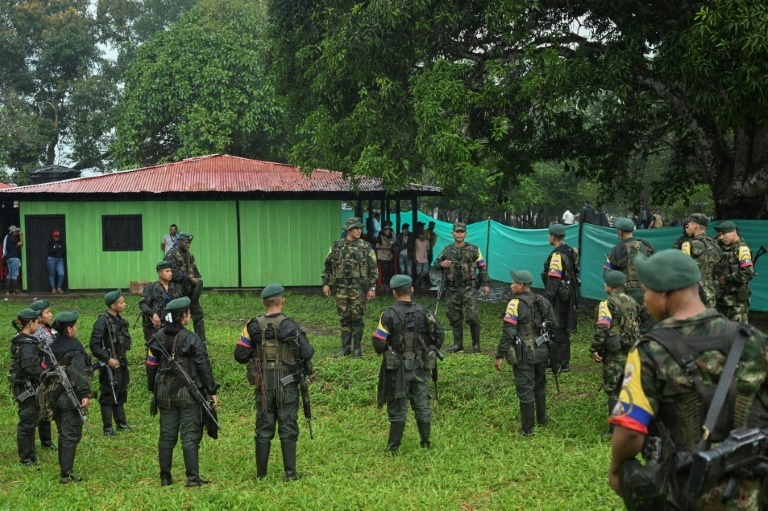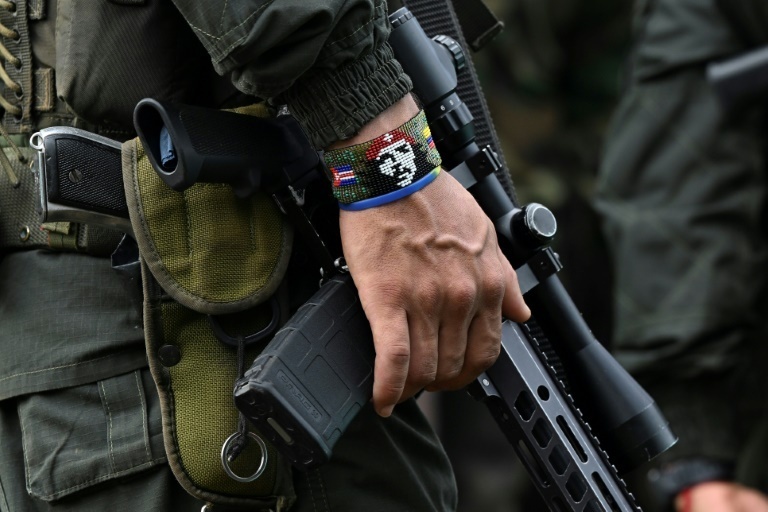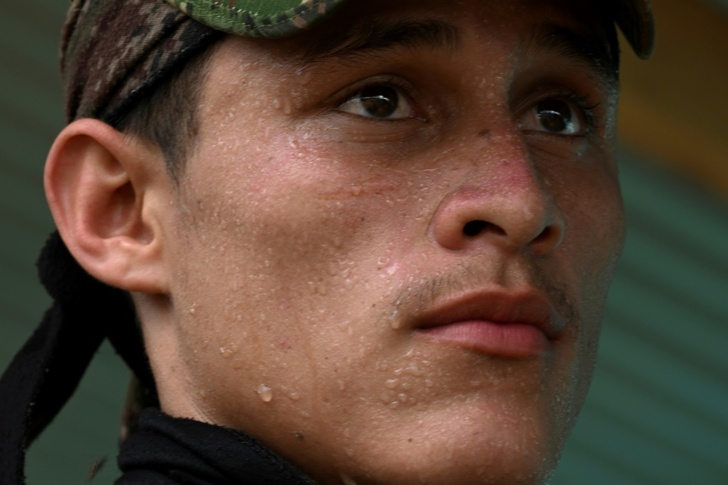Colombia's largest group of dissident guerrillas who rejected a 2016 peace deal with the state is asking for a new opportunity to negotiate with the government, but uncertainty reigns over how President Gustavo Petro will achieve his proposed "total peace."
On Sunday, the Estado Mayor Central (EMC), the largest dissident group from the Revolutionary Armed Forces of Colombia (FARC), announced it was holding a massive meeting of rebels and villagers in an area it controls.
The EMC said it was ready to discuss peace "with social justice" and would begin doing so from May 16.
When FARC, which was the most powerful guerrilla group in the Americas and is now a communist political party, decided to disarm, most of its 13,000 members did so.
But the EMC refused. The government believes it has around 3,000 members, most of whom are new recruits.

- 'Biggest trap in history' -
The EMC's declaration of imminent peace has not elicited official word from the government, and has sparked little reaction from politicians.
Petro, who is visiting the United States, has not commented on the announcement, despite usually being highly active on social media.
Luis Alban, a former rebel and legislator for the Comunes party, did react -- but only in ire at the EMC claiming to be the sole heirs of the FARC guerrilla movement.
"We reject the use of our symbols by the self-proclaimed Estado Mayor Central (staff command). All this does is perpetuate the scenarios of stigmatization and puts at risk the lives of those that signed the peace deal," said Alban.

Right-wing senator Maria Fernanda Cabal said on Twitter future peace talks would be "the biggest trap in Colombia's history."
Just how a new peace deal can be reached remains to be seen, since "Colombia has a long history" of failed processes and few successful ones, expert Patricia Munoz, of Javeriana University, told AFP.
The EMC has already insisted that the "communities" under its control take part in the negotiations.
The EMC's fiefdom is a sparsely-populated area between the Andes and the Amazon the size of Britain, called "Llanos", an enclave known for its coca leaf production.
- Bumpy ride -
The EMC is trying to extend its influence by absorbing several smaller dissident groups, thus extending its tentacles into the neighboring regions of Cauca, Catatumbo and Putumayo.

Another dissident FARC faction, the Segunda Marquetalia, signed the peace deal but reneged on it in 2019.
Now the EMC's sworn enemies, they too have expressed openness to talks with the government.
Leftist Petro, a former urban guerilla who made his peace with the state in 1990 before moving into politics, also opened negotiations with the National Liberation Army (ELN) rebels and the Gulf Clan, the most powerful drug cartel in the country.
It has been a bumpy ride, though, with the government breaking off talks with the Gulf Clan over violations of their pact. Meanwhile, the ELN has refused calls for a ceasefire.
Munoz said that peace negotiations happen "when dialogue and trust-building have matured."
"If the Total Peace fails, the opposition's response will be ferocious. The flag-bearers for a strong hand against crime and for a military response to socio-territorial conflicts are just around the corner," said Mantilla.
Even if the negotiations succeed, there is always the fear that other smaller armed groups will simply step into the void and perpetuate the territorial conflict.
hba/jss/lv/ad/ltl/bc/bgs
© Agence France-Presse
Your content is great. However, if any of the content contained herein violates any rights of yours, including those of copyright, please contact us immediately by e-mail at media[@]kissrpr.com.
Source: Story.KISSPR.com

